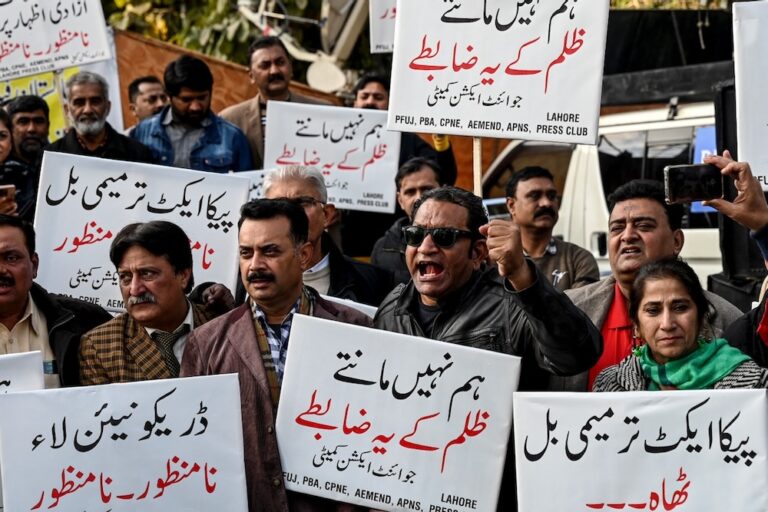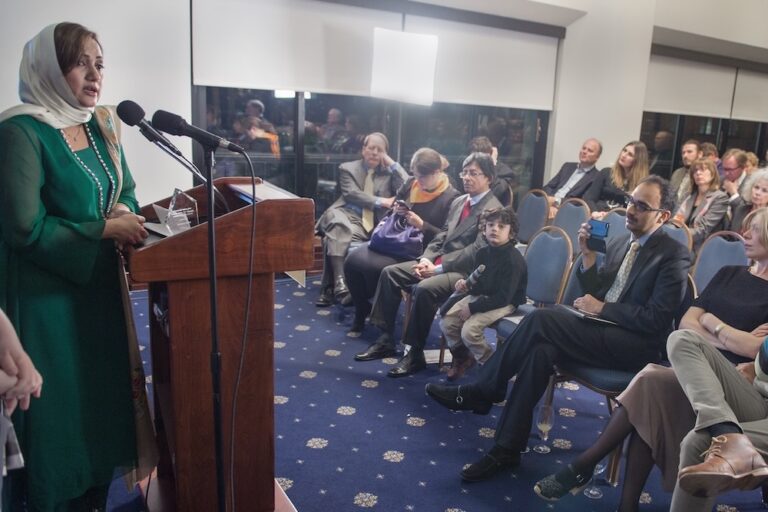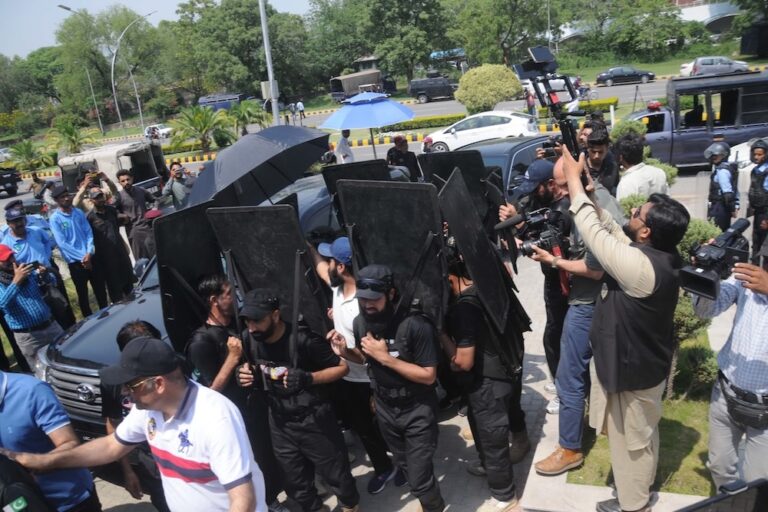(RSF/IFEX) – RSF has recorded an increase in press freedom violations since the start of the latest Pakistani military offensive against Islamist groups along the border with Afghanistan, particularly in the Shakai region. Since 12 June 2004, at least four journalists have been arrested, a BBC World Service stringer threatened and reporters from Peshawar prevented […]
(RSF/IFEX) – RSF has recorded an increase in press freedom violations since the start of the latest Pakistani military offensive against Islamist groups along the border with Afghanistan, particularly in the Shakai region.
Since 12 June 2004, at least four journalists have been arrested, a BBC World Service stringer threatened and reporters from Peshawar prevented from entering tribal areas.
RSF believes Pakistani and international public opinion has the right to know what is going on in the tribal areas. It is unacceptable for the army to impose a news blackout and arrest or threaten journalists who are doing their jobs in difficult conditions.
“We are aware of the security requirements of the military operations now under way, but Reporters Without Borders considers that Pakistani and foreign journalists should have a minimum of access to the conflict areas,” the organisation said in a letter to the military’s spokesperson, General Shaukat Sultan of Inter-Services Public Relations (ISPR).
On 12 June, Pakistani authorities arrested four journalists for several hours in South Waziristan. Allah Noord Wazir of the daily “The Nation”, Amir Nawab Khan of the daily “The Frontier Post”, Mujeebur Rehman of the daily “Khabrian” and a fourth unidentified reporter were all trying to reach the Shakai region, where the army has launched a large-scale operation against Islamist fighters, some linked to Al-Qaeda. Rehman, also a stringer for several foreign television stations, said the army seized his camera and video tapes as well as those of his colleagues.
Dilawar Wazir, a stringer with BBC World Service, reported this news on air. He was later threatened by a local official from Wana, South Waziristan’s capital, who told him that journalists attempting to go to the Shakai region would face “serious problems.” The Pakistani Army apparently ordered local authorities to prevent the press from reaching the area where the fiercest fighting was under way. General Sultan confirmed that this step had been taken for “security reasons.”
Several journalists in Wana told RSF that officials refused to give them any news about the situation on the ground.
On 13 June, the administration of the Khyber Agency tribal area refused to allow Peshawar-based journalists access to the tribal areas. The press wanted to cover a traditional assembly called by the Pakistan Islamist party Jamaat-e-Islami to protest military operations and actions against Pashtun tribes. An official, flanked by dozens of Pakistani paramilitaries, said he had orders from the governor to prevent journalists from entering the area. He threatened to use force if the press tried to enter the tribal areas without permission (see IFEX alert of 14 June 2004).
BACKGROUND:
The Pakistani Army has imposed major restrictions since March, particularly against foreign journalists covering military operations against Al-Qaeda or Islamist fighters in the Pashtun tribal areas. At least a dozen journalists have been arrested since then.


